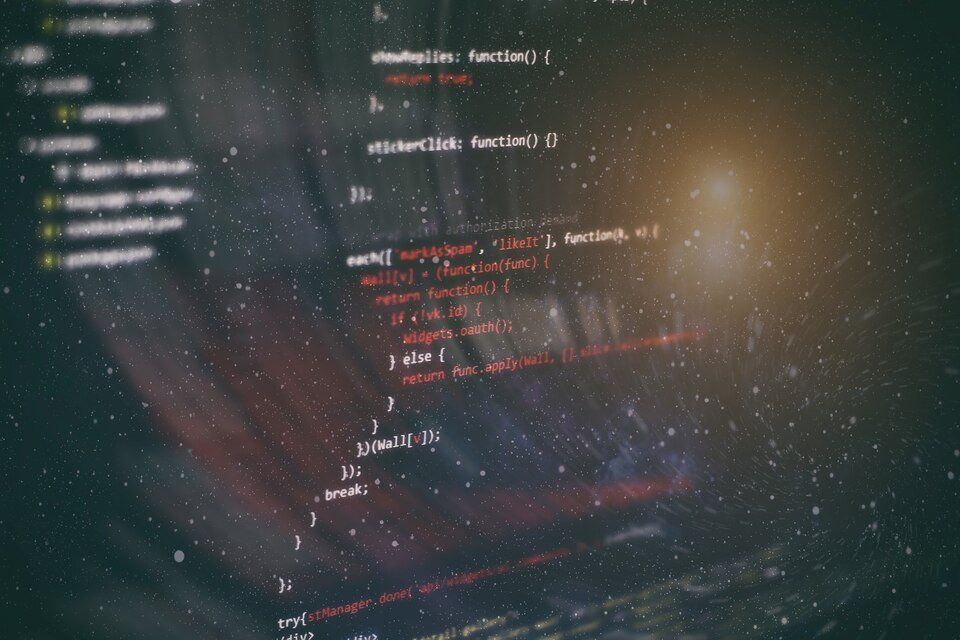Unlocking the Power of PHP Development: A Beginner’s Guide – Aparna Digital Marketing
Getting Started with PHP
PHP is a versatile and widely-used scripting language that serves as an excellent starting point for web development. Whether you are a beginner in coding looking to expand your skill set, PHP offers a robust foundation for creating dynamic websites and applications. In this blog post, we will guide you through the essentials of PHP development, making your learning journey both engaging and rewarding.
Setting Up Your Environment
To begin your PHP development journey, you need to set up your environment. Here are some steps you can follow:
- Choose a Code Editor: Selecting a reliable code editor is crucial for an efficient development experience. Editors like Visual Studio Code and Sublime Text have gained popularity among developers for their user-friendly interface and extensive support for PHP.
- Install a Local Development Server: A local development server allows you to test your PHP code before deploying it to a live server. XAMPP and MAMP are widely-used development server solutions that provide Apache, MySQL, and PHP bundled together. By installing one of these tools, you can easily create a local development environment on your machine.
Understanding Basic PHP Syntax
Before diving into PHP, it’s essential to have a solid understanding of its basic syntax. This knowledge will serve as the foundation for your PHP development journey. Here’s what you need to know:
- Variables, Data Types, and Operators: Familiarize yourself with PHP variables and their data types, such as strings, integers, and booleans. Learn how to manipulate these variables using operators like addition, subtraction, and comparison.
- Control Structures: Control structures, such as if statements and loops, allow you to make decisions and repeat actions in your PHP code. Mastering control structures will give you the ability to create dynamic and interactive web applications.
Building Blocks of PHP Development
Once you grasp the basics, it’s time to explore the building blocks of PHP development. In this section, we will cover two fundamental concepts: functions and arrays.
Functions and Arrays
Functions are an integral part of PHP development as they enable code reusability and organization. By breaking down your code into modular functions, you can create more manageable and maintainable applications. Take the time to understand how to create functions and pass arguments to them, as this will significantly enhance your PHP development skills.
Arrays, on the other hand, are versatile data structures that store multiple values in a single variable. PHP offers various types of arrays, including indexed arrays, associative arrays, and multidimensional arrays. Learning how to manipulate and utilize arrays will empower you to create dynamic and data-driven web applications.
Working with Forms
Interacting with users through HTML forms is a common requirement in web development. In this section, we will explore how PHP handles user input received through forms and best practices for form validation and security.
Handling User Input
PHP provides super global variables like $_POST and $_GET to access form data submitted by users. By using these variables, you can retrieve and process user input effortlessly. Understanding how to handle user input lays the groundwork for capturing user data and creating personalized web experiences.
Form Validation and Security
Efficient form validation is crucial to ensure the accuracy and integrity of user-submitted data. PHP offers built-in functions and techniques to validate form inputs, such as regular expressions and filter functions. Additionally, implementing security measures, like sanitizing user input and protecting against cross-site scripting attacks, is essential to safeguard your web applications.
Database Connectivity with MySQL
Building dynamic websites often involves interacting with databases for storing and retrieving data. In this section, we will explore how to connect PHP with MySQL, a popular relational database management system.
Connecting PHP to MySQL
PHP provides several methods to connect to MySQL databases, including the mysqli and PDO extensions. By establishing a connection, you can execute SQL queries to fetch and manipulate data stored in the database.
Basic CRUD Operations
CRUD operations (Create, Read, Update, Delete) form the foundation of database-driven web applications. Understanding how to execute these operations using PHP allows you to store user information, retrieve data for display, update existing records, and delete unnecessary data.
Advanced PHP Techniques
Once you have a solid understanding of the basics, you can explore advanced PHP techniques to enhance your development skills.
Object-Oriented PHP
Object-oriented programming (OOP) is a powerful paradigm in PHP development. By organizing code into classes and objects, you can write more efficient and scalable applications. Understanding concepts like inheritance, encapsulation, and polymorphism will take your PHP skills to the next level.
Sessions and Cookies
Sessions and cookies are essential for maintaining state and enhancing user experiences in web applications. Sessions allow you to store user data across multiple requests, while cookies enable personalized experiences by remembering user preferences. Understanding how to manage sessions and implement cookies will make your PHP applications more interactive and user-friendly.
Tools and Resources
To further excel in PHP development, it’s essential to familiarize yourself with a few additional tools and resources.
Version Control with Git
Git is a popular version control system that helps track changes in your codebase, collaborate with others, and efficiently manage your projects. Learning the basics of Git, such as branching and merging, will streamline your development process and make you a more effective PHP developer.
PHP Frameworks
PHP frameworks like Laravel and Symfony provide a structured approach to web development. By embracing these frameworks, you can leverage pre-built components, libraries, and MVC architectures, saving time and effort in your PHP projects. Familiarize yourself with popular frameworks and understand how they can simplify your development workflow.
Building Real-World Projects
To reinforce your PHP skills and gain practical experience, it’s crucial to work on real-world projects.
Putting Your Skills to the Test
Develop small projects that challenge your understanding of PHP concepts and encourage you to think creatively. Experiment with different functionalities and seek feedback from the PHP developer community. Building real-world projects will help solidify your knowledge and give you hands-on experience with PHP development.
Continuing Your PHP Journey
Your journey with PHP shouldn’t stop at the basics. Continuously learning and exploring new concepts will enable you to stay updated with PHP trends and advance your skills.
Stay Updated with PHP Trends
Follow PHP community forums, blogs, and websites to stay informed about the latest trends and updates in PHP development. Engage with the community, ask questions, and contribute to discussions. Embrace continuous learning as PHP evolves.
Explore Specialized PHP Development
Consider delving into specialized areas like WordPress development or API integration. Learning these additional skills will expand your opportunities as a PHP developer and make you more marketable in the industry. Continuously challenge yourself to explore new facets of PHP development.
Remember, learning PHP is not just about mastering syntax, but also understanding how to leverage its power to create dynamic and scalable web applications. Stay curious, practice consistently, and enjoy the rewarding experience of PHP development!
This blog post was crafted by an expert blog post writer in collaboration with Aparna Digital Marketing.




